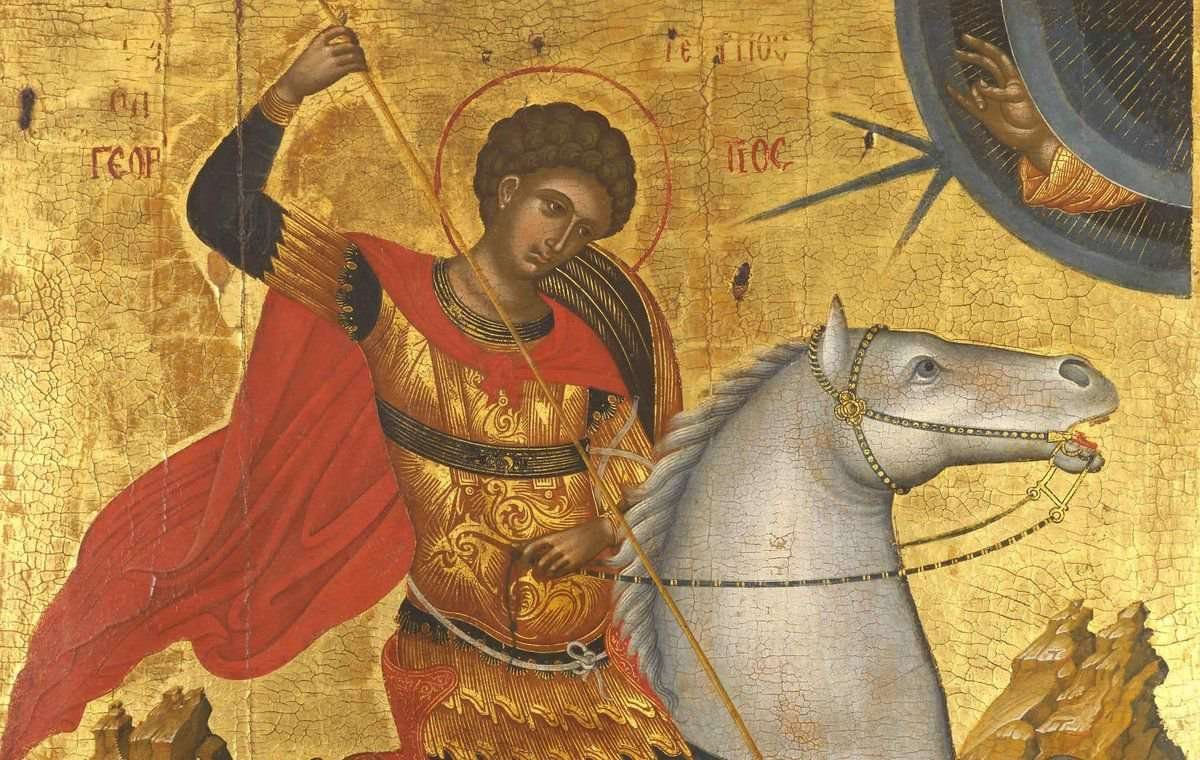St. George's Day in Georgia, how is the celebration of Giorgob
Saint George, or George the Victorious, has long been considered the patron saint of Georgia. In November, the whole country celebrates a holiday in his honor – Giorgobu. Moreover, this day is officially fixed, and November 23 is declared a public holiday throughout the country.
Legends and legends about St. George
The symbols of St. George the Victorious are present on all distinctive signs of Georgia. The coat of arms of the country depicts a horseman piercing a snake with a spear, on the flag of the Georgian Orthodox Church – the St. George Cross, which was also on the banners of Queen Tamar.
He was glorified and praised during his lifetime for his courage and fortitude, for showing miraculous help in danger, for his will and heroic trials passed.
According to legends, Saint Nino was his sister and shared stories about her brother with the inhabitants of the country. It was she who founded the Memorial Day of St. George after his martyrdom, and obliged Christians to keep the memory of him.
The first church in honor of St. George was erected by Tsar Mirian at the burial place of Saint Nino. From that moment the cult of St. George began to spread, and after a few hundred years churches and monasteries were built everywhere in his honor. After each victory, the generals and rulers built a temple on the site of the battles. Thus, in the Middle Ages there were already more than 350 chapels named after him.
Giorgoba is otherwise called the Day of the Wheel of St. George. This name was due to the nature of his martyrdom. The Emperor Diocletian, who tried to destroy the Christian faith, tortured Herogius by tying him to a wheel opposite a board with knives and nails.
With each circle, rotating, the body of the martyr was pierced by blades and spikes, causing imminent death. However, George did not die immediately, for a long time he bled, thrown by the executioners into the dungeon.

The significance of Giorgob for Georgians
St. George's Martyr's Day is considered one of the most significant holidays for all Georgian believers. At the same time, the Day of the Wheel is celebrated only by the Georgian Orthodox Church.
Given the cult that began from time immemorial, its significance has not diminished in Georgia today. Until now, George is considered the most common name, they pray to him, asking for victories and protection, asking to get rid of demonic forces.
On this day, divine services are held in all churches of the country, the whole country is immersed in prayers. Georgians are very religious and reverently honor their ancestors, and George the Victorious is one of the most important persons in the history of the country.
Read about other religious and secular holidays that are celebrated annually in Georgia in the Madloba catalog. You will easily find information about all the memorable dates, and about what traditions Georgians observe these days.






0 comments
Log in to leave a comment